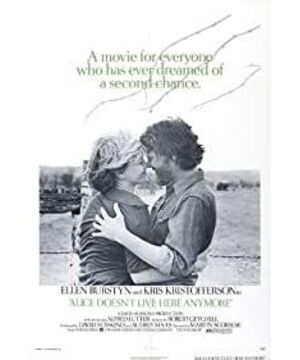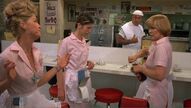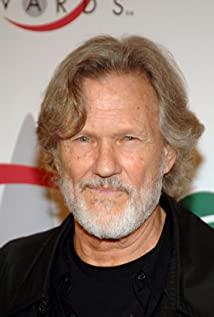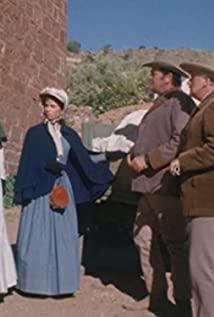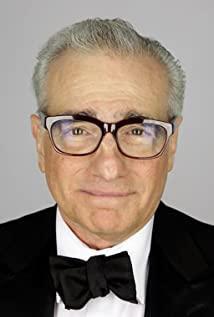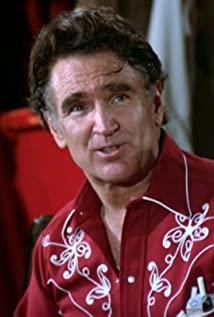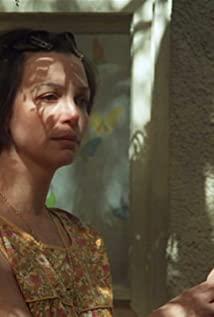The whole film is divided into several paragraphs according to the changes of the heroine Alice's living environment and psychological state. The typical difference between paragraphs is the color of the scene. At the beginning of the film, Scorsese uses an extremely dreamy opening, imitating the style of "The Martian Invasion" to set up a rural setting under a red sunset, and the little girl Alice appears as Dorothy, singing "You Never Know". After that, I entered Alice's adult world, the home life in a small town in New Mexico, which seemed calm and colorful, in order to fit Alice's mentality at this time, which is also the mentality of traditional American women, and the quiet and monotonous life of a housewife. Following her husband's accident, Alice decided to set foot on the road home and return to California to support her son on her own. The freshness and fear of independent life, the contradictory feeling of relying on men and hating being dominated, reflected a desolate and gloomy feeling in the picture. . Some chapters adopt the expression technique of road films, which are carried out in small scenes inside the car. In the last part of the farm, Alice has completely entered the role of controlling her own life, and will not give up her pursuit for a man, and the colors will return to bright. The difference between the scenes is very obvious, which shows Alice's psychological change process well. The theme of the entire film is a woman's growth process, how to deal with love and her own career, women are no longer just as subsidiary in life. In addition to the wonderful performance of the characters, color is crucial in the description of the entire change.
The overall feeling of the film is very warm and humorous, with good hopes for life and sharp satire on social phenomena. In it, Scorsese employs a Douglas Shark-esque light melodrama approach, using real scenes from life to express themes. Scorsese himself does not want to treat the film as a female-themed work. From a consistent perspective, he wants to pay attention to a kind of human nature, to pay attention to the wonderful mentality of how human beings grow up in mistakes and make mistakes again and again. Alice is the protagonist in the film. At first, she yearned for a feeling of being taken care of by a man, so she sought a strong man. It was not until her dream was broken that she realized that it was an illusion at all, so she embarked on the journey of searching again. In the process, Ben, a chauvinist who pursued his wife behind his back and likes to solve problems with violence, and David, a farmer who used to say "I open the door and let her go", used his own way to influence others. , Alice redefines the nature of a man and her own value in the process, avoiding the mistakes she made and making new ones. This creates a real sense of life.
The biggest highlight of the film is the performance of the actors. Ellen Burstein finally won the Oscar for best actress for the role of Alice, and her performance in the film is really impeccable, completely changing the psychology of new women in the process of change. It was expressed that the filming coincided with her divorce, which was similar to Alice's mood when her father died. The whole performance was full of strength and convincing. The two leading actors in the film, Chris Christopherson, who plays Farmer David, and Alfred Root, who plays his son, are their first big-screen roles, and the whole performance is remarkable. Christopherson's stubbornness once gave Scorsese a headache, but both of them learned a lot of each other's advantages during the cooperation. Although his performance was a little dull, he did not lose his innocence. Root was only 12 years old at the time, at the same age as Tom in the film, so his performance is more of a true character. Berstein also has a 12-year-old child. What happened on the set during the day was the same as her returning home. What happened was different, and this mother-son rivalry was so real and emotional. Child actress Jodie Foster was also featured in the film, but it wasn't until "Taxi Driver" that she had a real place in the Scarses film.
Generally speaking, in his film career, "Goodbye Alice" is one of his rare works that focuses on ordinary people's life and is full of warm human touches, although it lacks the typical Scorsese-style violent feeling and vision. Pleasure, but still reflects his excellent control of the subject matter. It was only after this mainstream success that he was able to start filming his most important work, Taxi Driver.
View more about Alice Doesn't Live Here Anymore reviews


